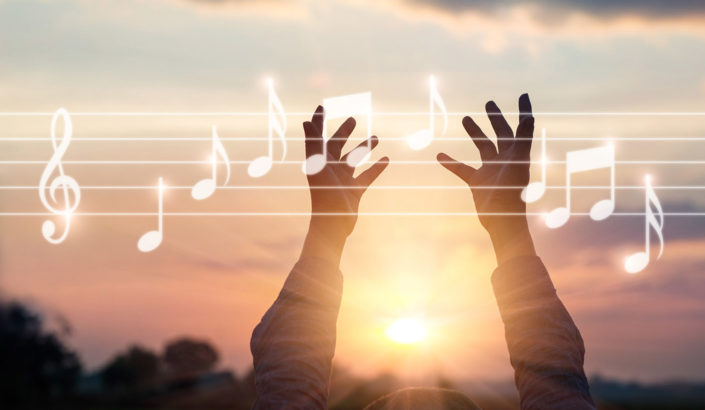What Is It?
Music instruction in schools can include a variety of activities, such as singing, playing instruments (individually and/or in groups like orchestra or band), studying music theory, or learning to understand and appreciate music from various traditions.
Music is inherently prosocial in nature–it requires cooperation in order to create something beautiful, cultivates empathy by putting us in touch with our own and others’ emotions, and helps to bridge differences through songs that emphasize our common humanity.
Whether they are listening to it or creating it, music has the power to promote students’ understanding of others, reflect and shape their identities, and improve their well-being.
- At a small K-12 school with no formal music program, the teachers decide that they want to incorporate prosocial music activities into their classrooms.
- Elementary teachers cultivate students’ empathy through an “Improvising Rhythm” game during which groups of students use simple percussion instruments to improvise together, adjusting the rhythm as it changes by someone either in or out of the group.
- Middle school teachers foster students’ emotional skills by first discussing how a piece of complex music makes them feel, and then mapping different parts of the piece to a range of emotions.
- High school educators develop students’ social skills by having them compose a piece of music together through rap, choral singing, or with instruments.
Why Is It Important?
Though many recognize music as a valued component of a well-rounded education, pressures around academic performance and testing often result in the reduction of music education in schools. This has led to increased interest in the array of benefits, both academic and social-emotional, that schools may be foregoing by sidelining music.
Music can improve emotional well-being.
- Listening to music can be an effective means of emotion regulation, and studies with children, adolescents, and adults have shown that music therapy—involving singing, playing instruments, and/or listening to music—can reduce anxiety, anger, depression, and stress.
- Learning an instrument has also been shown to boost, or at least prevent declines, in children’s’ self-esteem; it can also strengthen young people’s sense of identity.
Music can help students understand and get along better with others.
- The experience of singing or playing music together gives people the opportunity to develop networks of trust and reciprocity and can enhance social cohesion. Research shows that children in group music classes perceive better classroom climate and are more satisfied with school.
- One study found that children who participated in a program of interactive group musical activities showed increases in empathy relative to other children. Another found that group music training enhanced children’s levels of sympathy and prosocial behavior, especially in those children who started off lower in such behavior.
- Even listening to music with prosocial lyrics has been demonstrated to reduce aggressive feelings and behavior.
Music can enhance academic skills and performance.
- Music education seems to improve children’s overall IQ, executive functioning, and both spatial-temporal and numerical reasoning.
- The incorporation of music into instruction has been shown to improve verbal memory and reading skills, such as phonemic awareness, in young children.
- In middle and high school students, involvement in instrumental music is related to greater mathematics proficiency and achievement.
- Large-scale studies have shown a positive relationship between music involvement and overall academic performance, even when socioeconomic and demographic factors are taken into account.
Practices

Creating Musical Playlists for the Classroom
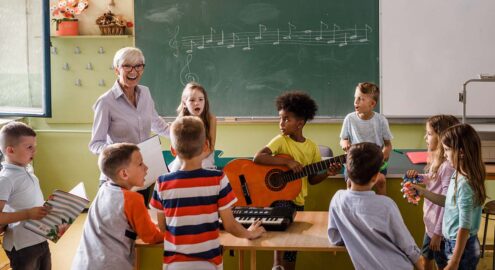
In Harmony with Sound

The Beauty of Collective Effervescence

Letting Music Shape You
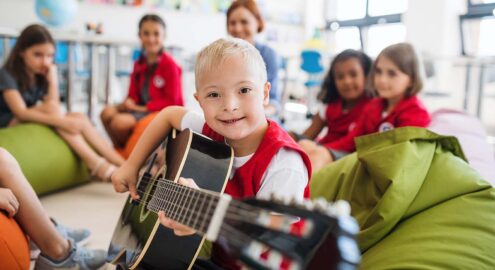
Music to Inspire Kindness
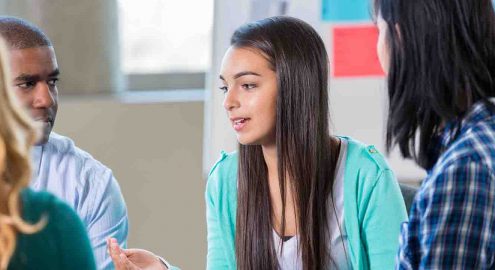
Norm Co-Creation

The World is a Dance
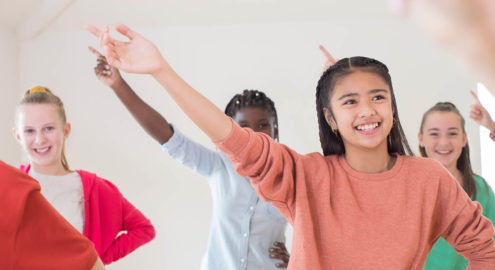
Getting to Know Each Other Through Dance

Mindful Music Moments

Listening to Music Mindfully

People Who Made a Difference

Gratitude Mirror
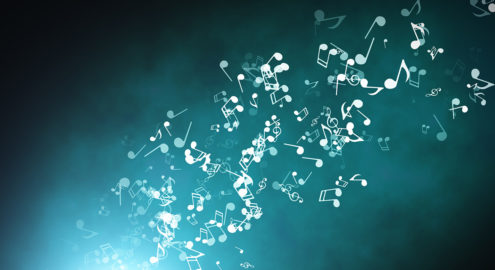
A Song of Gratitude

Are you ready to build a kinder, happier school where everyone belongs? Join Greater Good Educators! Explore the science of well-being in a supportive community of educators from around the world. Registration is now open for the 2025-2026 school year!


